Modern music is continually getting worse — and won’t stop doing so anytime soon
You’ve probably heard it over a thousand times in your life and brushed it off – “music hasn’t been good for a long time.”
I know I have been nicknamed “grandpa” or “old man” for my musical taste, among other things. But regardless of who you heard it from, you might want to listen to them in the future, because there’s a very solid case to be made that modern music will never live up to the old days.
While music as a whole is getting worse, I think it’s safe to say that the leaders of this new generation of sound are the pop and rap genres (we could also throw in country, but let’s be honest – country hasn’t been good for a long, long time).
But don’t take my word for it, because in 2012 the Spanish National Research Council ran 500,000 samples of music from 1955-2010 through an AI program to answer this very question. Yes, there are scientific studies on this topic. Shocking, I know. While this study is a bit dated, the findings are still more than true a little more than 10 years later.
The study measured the music samples in three distinct categories: Harmonic Complexity, Timbral Diversity and Loudness. (Timbre is described as the texture, tone quality, or perceived sound quality of a note or chord. Basically how rich and deep a song sounds.)
What the researchers found is that harmonic complexity has decreased (making music sound homogenous), timbral diversity has dropped exponentially after peaking in the 1960s (meaning modern music is less deep and rich), and loudness has increased (which means that volume is now favored over sound quality).
Since this study came out almost a decade ago, shouldn’t artists take this information and try to change? You would think so, but I can guarantee you they do not. I created a Spotify account just to listen to the current top 10 songs (Miley Cyrus is at No. 1 with “Flowers”), and let me tell you, the researchers are definitely right.
Every song on the top 10 sounds at the least very similar. Often, I can’t even tell when one song changes to the next. There is definitely no extreme chord progression as the beat and melody stay largely untouched for the duration of the song, and of course the booming bass is the most prevalent element in all of them. They all had the same electronic drum kit you hear in every pop song and nothing that really distinguished one song from another. For those keeping score, that is timbral diversity checked, harmonic complexity checked, and loudness checked.
However, the problems outlined in the study only scratch the surface of the defects of modern music.
As an example, consider the effect of the digital age on music. Gone are the days when you had guitarists, bassists, drummers, pianists and a singer who came together in a studio and put in long hours that made their fingers and brains hurt to produce a quality song. Now any old Joe can just get on a computer and mix pre-recorded (or even worse, digitally synthesized) sounds into a beat that’s catchy and reach the top of the charts.
Vocal quality also suffers. The obvious giant in this conversation is autotune. Modern artists need not train their voices to the levels of Brian McKnight, Frank Sinatra, Aretha Franklin, Louis Armstrong, Ella Fitzgerald, Stevie Wonder, Elton John, Luciano Pavarotti, Andrea Bocelli, Prince or Michael Jackson. Instead they can just digitally pitch their voices to make it sound somewhat decent. And still, artists like this manage to sell concert tickets (I’m looking at you, Post Malone and Luke Combs). That’s not to say that there aren’t good vocalists today – Ariana Grande and Sam Smith, for example, have incredible vocal performances on most of their songs. However, again we’re talking about modern music in general – and in general, vocals are atrocious.
Not to say that this is a new thing in music culture, but at least in the old days there was no pretending to be something you weren’t (vocally that is). Even then, there were major stars who were nowhere near others in the business.
For example, one of my favorite singers is the “godfather of shock rock,” Alice Cooper. If you were to isolate just his vocals, you would most likely dismiss him as a low-tier artist who has a niche fan group. But he knew his strengths and weaknesses and what kind of music would best suit his voice.
Not to mention he more than made up for his vocals with his horrifically great stage performances (mock guillotine executions, building Frankenstein-like monsters on stage, etc.). The one thing he couldn’t fake was his voice, and yet he is still one of the most influential (and recognizable) faces in rock and roll.
On the topic of godfathers and genres, when was the last time an artist was unique enough to pioneer an entirely new genre? Answer: not for a long time. While recently certain artists have made niche genres like EDM popular, a new genre hasn’t been invented in quite a while. Back in the good old days, you had so many godfathers or godmothers of music. There was the
“godmother of soul” Patti Labelle, the “godmother of punk” Joan Jett, the “godfather of soul” James Brown (one of my personal favorite singers) and the “godfather of heavy metal” Ozzy Osbourne (my personal favorite rock artist ever).
More than singers, one story in particular really inspires me. Tony Iommi was the lead guitarist for one of the most influential rock bands of its time, Black Sabbath. Tony is also credited with the title of “godfather of heavy metal” because of his unique guitar playing. When he was 17, he worked in a factory and had the tips of his fingers cut off. Rather than give up guitar, he fashioned fake fingertips out of rubber and plastic that he could put on when he played guitar. His unique style laid down the standard for all future heavy metal guitarists.
Today, we just don’t see this level of innovation.
Another large problem with the industry today is it is far more about making money than making music. Because people no longer buy albums and instead click on songs on streaming services, artists have to think differently. Instead of coming up with songs and establishing their unique presence in the musical sphere, modern singers create more familiar and worn out beats with familiar and worn out topics to make sure they get the clicks and the money.
Perhaps one of the most obvious problems in modern music however, is messaging. On the Spotify top 10 list, the only song that didn’t sound like a carbon copy of the others was a song by Sam Smith titled “Unholy.” While the beat was somewhat different, I couldn’t help but be shocked by the lyrics.
They’re overtly sexual (which I probably should have guessed from the title). But this doesn’t surprise me considering we live in a country where the No. 1 song for three weeks (two consecutive) was “W.A.P.” by Cardi B.
Other than overtly sexual songs, most songs today are just about drugs, fast cars, relationships that are extremely problematic, being rich or even just bragging about how good a singer has it (“Suffering from Success” by DJ Khaled, anyone?).
Now again, this isn’t to say that messaging is a particularly new issue. Plenty of old songs have very bad messages. I mean, why else would you think
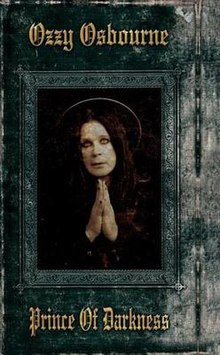
’s other title is the “Prince of Darkness” (Answer: For songs like “Suicide Solution” that landed him him in court not once but twice.)
What especially worries me is how the old artists who still played a role in the modern music sphere are going away. Elton John just played his last North American concert and said he wanted to focus on family life. Legendary guitarist Jeff Beck and David Crosby of Crosby, Stills, Nash, and Young just died this month. Many of the legendary musicians that the world has come to recognize as extraordinary are increasingly fading away, leaving only the new uncreative, untalented, vulgar, arrogant and money-focused artists of the world we live in.
In his 1971 song “American Pie,” Don McLean sang about what he profoundly called “the day the music died.” I think we are sadly crawling closer and closer to that dreaded event every single day.
Your donation will support SacSchoolBeat student journalists and will allow us to work with more student journalists to cover education on campuses and in school districts in the Sacramento region. A timely mini-grant from the Sacramento Press Club has allowed us to conduct our summer training and continue the program at least through the end of the fall semester.


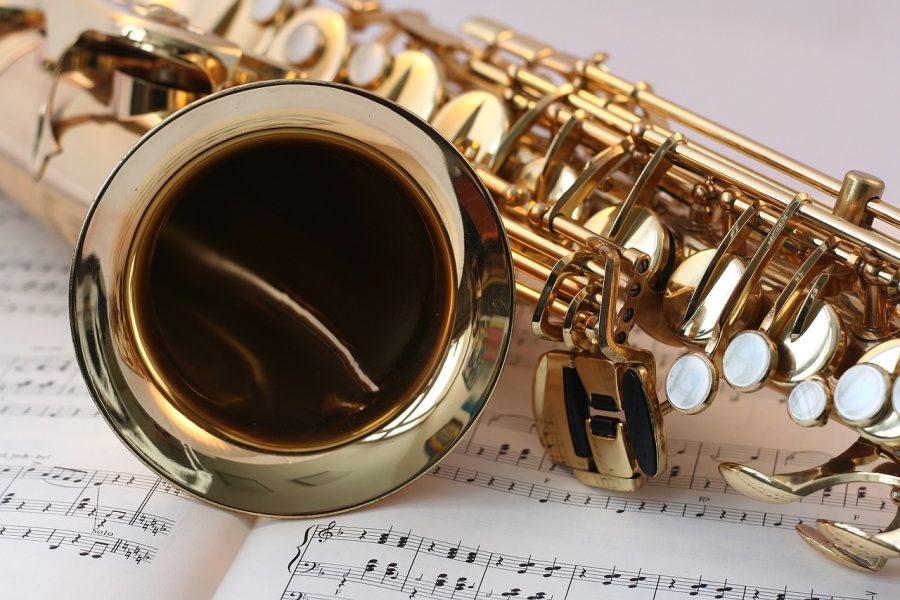
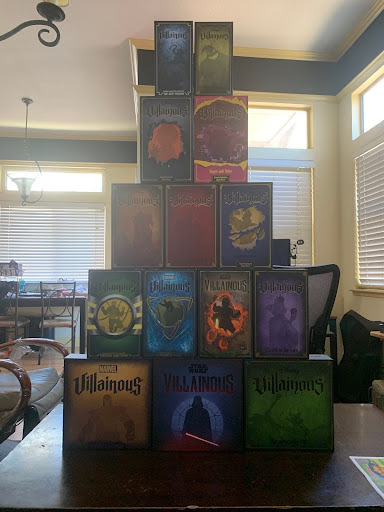
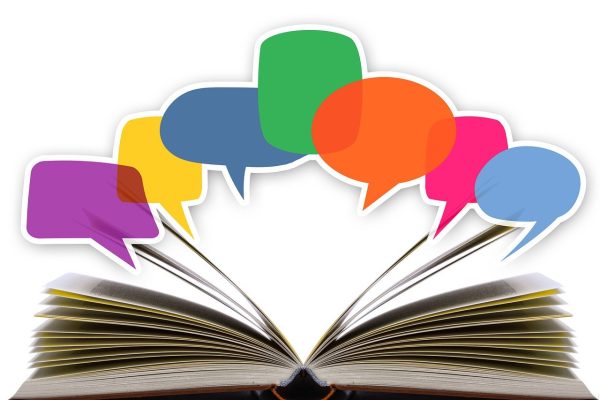
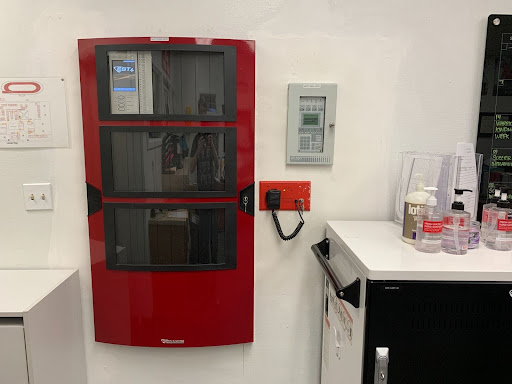
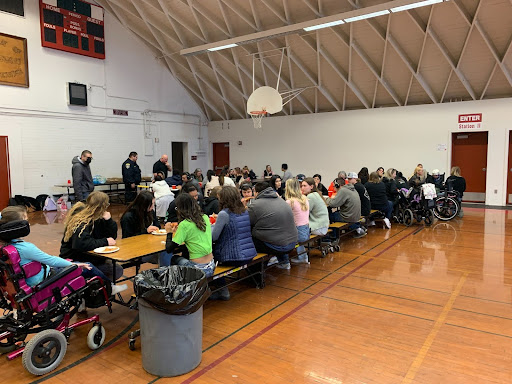
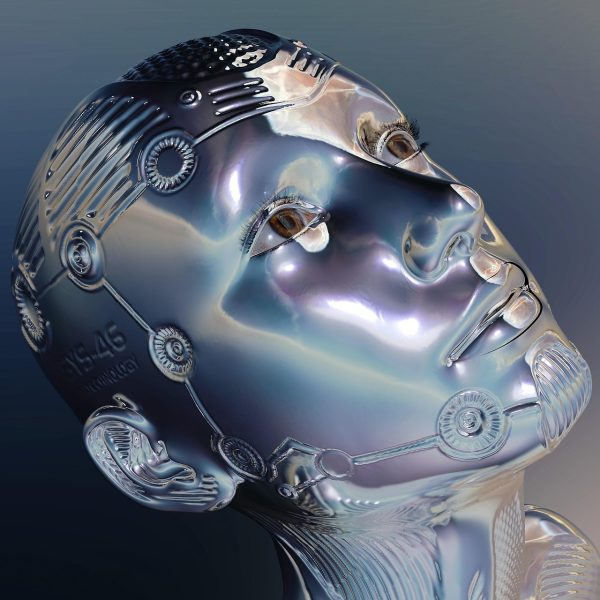
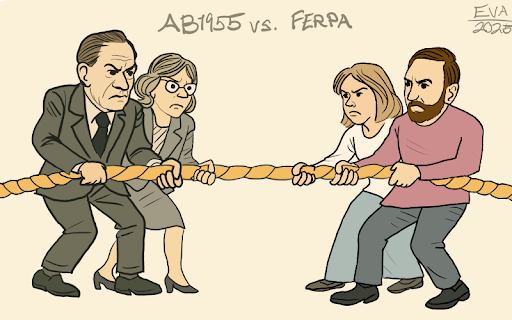



Raoul • Aug 18, 2025 at 7:46 am
Hey, but you’re talking about “music,” right?
I can’t categorize the (crap) they’re producing these days as “music.” This goes against everything I know and have learned about MUSIC, and everything I enjoy.
It will NEVER be better than the ’60s through the ’90s.
In the 90s, people had to search for good songs, but they were still out there. Whereas today, NOTHING is good anymore. So I’m stuck with what was made in the ’60s through the ’90s.
And I’m talking about different kinds of music.
From Presley to Beethoven, to jazz and blues.
Thanks to the crap they’re making these days, I still cherish the music from my youth.
These days, people make songs about their problems, and everyone stands on the sidelines applauding, “BRAVO!” That takes some courage, singing about your problems! Well, I don’t feel like listening to other people’s problems; I’ve got enough to do with my own life!
Music should be about relaxation, and with what’s being played these days, that’s impossible!
(Translated by Google Translate from the original in Dutch)
paul howorth • Aug 31, 2025 at 12:11 pm
You’re actually off by a couple of decades: music died after the 70s. Once digital recording became the norm in the 80s, things went downhill in a hurry. Think about it: how much good music was made in the 60s and 70s versus how much has been made for the last 40 years. Scary, right? Digital music was forced on us (well, not on me, I don’t listen to much music beyond 1980), and in the process the spirit of music was destroyed. I can’t even listen to a CD without my ears rebelling. Granted, I have very sensitive ears, but it shows you how bad it is. I wish others would listen and change things. Analog recording–the style that corresponds with nearly all the greatest music–has to come back if we are to save music itself.
Administrator • Jul 16, 2025 at 10:02 am
need to reply with your email to verify account
Kaz Vorpal • Oct 3, 2024 at 7:02 am
Well I agree with your general premise, one significant mistake in your argument is when you say that all modern music sounds alike.
This is a problem not with the music itself, per se, but with inexperience in any specific type of medium.
In this case, almost anyone can differentiate the unique sounds of various artists in their own generation, when they are a teenager, because their overall knowledge of music is very shallow.
But once they have accumulated a significant range of experience with music, when they are first presented with a new era of music, what they focus on is parts they are already familiar with, and they will find those to sound the same.
This was true for older people in the 1920s, 30s, 40s, 50s, etc. It’s not just a new thing today. Older people in the 1960s were complaining that all the new music sounded alike, too.
So while music has gotten simpler and dumber, when you listen to the current top 10 and think it all sounds alike, it’s because you are focusing on the parts that sound the same, rather than discerning what makes each of those acts unique. A teenager, today, can listen to those 10 songs and they sound so distinct that the team could probably go on to identify which of a second set of songs was performed by the same act as the first set, as easily as any other decade’s teenager.
Administrator • Sep 1, 2024 at 11:36 am
Comment author has not verified that this comment came from [email protected]
Administrator • Sep 1, 2024 at 11:35 am
Comment author has not verified that this comment came from [email protected]
Administrator • Sep 1, 2024 at 11:35 am
Comment author has not verified that this comment came from [email protected]
Liralen • Jun 29, 2024 at 11:25 pm
I was born in 1955 and so grew up listening to amazing innovations in music.
However, by the 1980’s, I could no longer tolerate pop radio stations for reasons I didn’t understand until decades later, when I found a video mocking 4 chord songs, based upon the chords in Pachebel’s Canon.
The first couple of 4 chord songs I heard were great, but after awhile, they palled. Hence my distaste for pop radio music.
On the other hand, Hans Zimmer is probably laughing his way to the bank playing 4 chord songs. Even I love them. I think it’s the mixture of classic instruments and synthesizers.
Then there’s things like Dance Monkey.
No answers from me, but rather, things to ponder.
Tam • May 4, 2024 at 6:10 pm
I liked your article Josh. I have noticed a lack in the range of music, and have found that most mainstream stations in the UK play the same songs. I think things changed over here when they took away the music shows on the free channels, where they played a diversity of music in one place, playing in a a short time slot. Now you have to pay, or search online, etc without any knowledge of what new music to look for. Hopefully someone will think of music being for the masses and not for those who can afford subscriptions and give unknown talents a chance. Maybe things are starting to change, the UK is flooded at the moment with country and folk, who would have thought.
Pete • Apr 29, 2024 at 9:23 am
Until 5/6 years ago, I used to like modern music. Then suddenly started listening to the 60s and 80s and 2 years ago I found myself liking classical music, Chopin and Rachmaninov above all. Now, turning back and trying to taste modern music, I find it absolutely disgusting. Of course, very rarely do I also listen to the 60s, but nothing beats Chopin. You’re right, modern music is going downhill at a high speed and they just sound completely the same.
God knows what has modern music and society becom
coda • Apr 26, 2024 at 4:04 pm
nah, music is more diverse then it’s ever been with streaming, and instead of lamenting about pop music you don’t like, dig deeper to find artists who resonate with you. lately i have been infatuated with acts like viagra boys, denzel curry, 1999 write the future and adrianne lenker. it takes more effort to find stuff you enjoy, but the pool to find that stuff is now completely accessible to anybody who wants to take the time to listen. i don’t enjoy this opinion as an artist as it writes off the innovations and interesting music produced by my fellow musicians, it comes off as hollow, and as if you are not willing to spend any effort looking for music which suits your tastes. while tiktokification and artists not getting paid enough through streaming are definite issues in music, dismissiveness and purposeful inaction are not solutions to the problem.
easywind • Oct 14, 2024 at 1:49 pm
You don’t agree with the author, of course, because you’re 12.
Elizabeth • Mar 31, 2025 at 10:50 am
Ah yes, I don’t agree with you so I must insist you’re a stupid kid. You have to be, because there’s no way a reasonable person could have any opinion but mine!
-This is what you sound like to me(in case you didn’t pick up on the sarcasm).
Phil • Apr 25, 2024 at 8:58 am
Just tried listening to a new album of new music from a fairly new and popular artist (not giving them the benefit of an advert). As I typically find these days, it makes my ears feel like they are going deaf with the noise, I turn the volume down, it still feels loud even thought it isn’t, eventually I can’t turn it down anymore and its barely audible yet it sounds loud and me ears feel full. Putting on any music from CDs I have from decades ago I can listen to entire albums at a good volume and enjoy them without any problem.
The “loudness wars” have a lot to blame for my being unable to listen to modern produce music for more than a couple of minutes before it just becomes noise I want to stop. There is no quiet or gaps between any instrument, you can’t hear through it and feel any kind of atmosphere, track after track is the same loudness, every instrument is the same volume.
I’m glad it isn’t just me.
Bart • Mar 4, 2024 at 10:24 am
Very good article Josh, and quite true. I am a school teacher and a musician in waiting. I say that, because I was a guitarist in a rock band years ago, but I find it difficult today to find a group of individuals willing to actually “play”! People are doing a lot of listening, but it’s only a very small minority who are interested in playing an instrument. It has not helped that many school programs have cut funding for the arts!
As a teacher, I obviously work with young people daily, and I often ask them “what music were you listening to a year ago, or even 5, 10 years ago.” Most can’t recall, and really don’t care to recall. Why? Because the music they are growing up with has become expendable, throwaway. Whereas, I still have all my records and tapes that I bought as a youth, still cherish them, and still listen to them. That music still evokes emotion just as it did way back when.
* I wish you luck in your writing, but offer a pointer – don’t include too many “my personal fave” comments. People may disregard your whole piece if they are not onboard with your picks, or find that you are trying to influence their ideas with “your” selections. Try to be unbiased and cater your writing to everyone.
Czar • Jul 12, 2023 at 8:09 am
Today’s music is generic and unlistenable for people over 30. There’s no unique voice especially female singers all sounding almost alike. Even male singers don’t have the variety of voices we had in the past. Yes they can sing but it’s formulaic.
Personally I don’t think things will improve. Today’s society is a disposable kind of society. There’s a lack of patience with short attention. The wishy washy generation. While things are getting easier with so many gadgets and social media etc that can occupy their minds and attention I have a feeling that fundamentally the current generation is a less happy generation despite having all these not available in older generation. They are also a pampered generation. They are also not a deep generation compared to older generation.
These are all reflected in the music produced now. Mostly catchy and highly forgettable music that need to attract immediately but are not lasting. In other words disposable kinda music.
Sean • Nov 20, 2024 at 3:26 pm
I’m 16, and I think music today is garbage.
Kai Jones • May 25, 2023 at 11:11 am
I completely agree with this. Music has gotten horrible over the years, since the 70s, technology has started being relied on more and more and now it is beyond relied upon; especially like what you said with vocalists not needing to be able to sing properly as they have autotune to change their voices to sound decent.